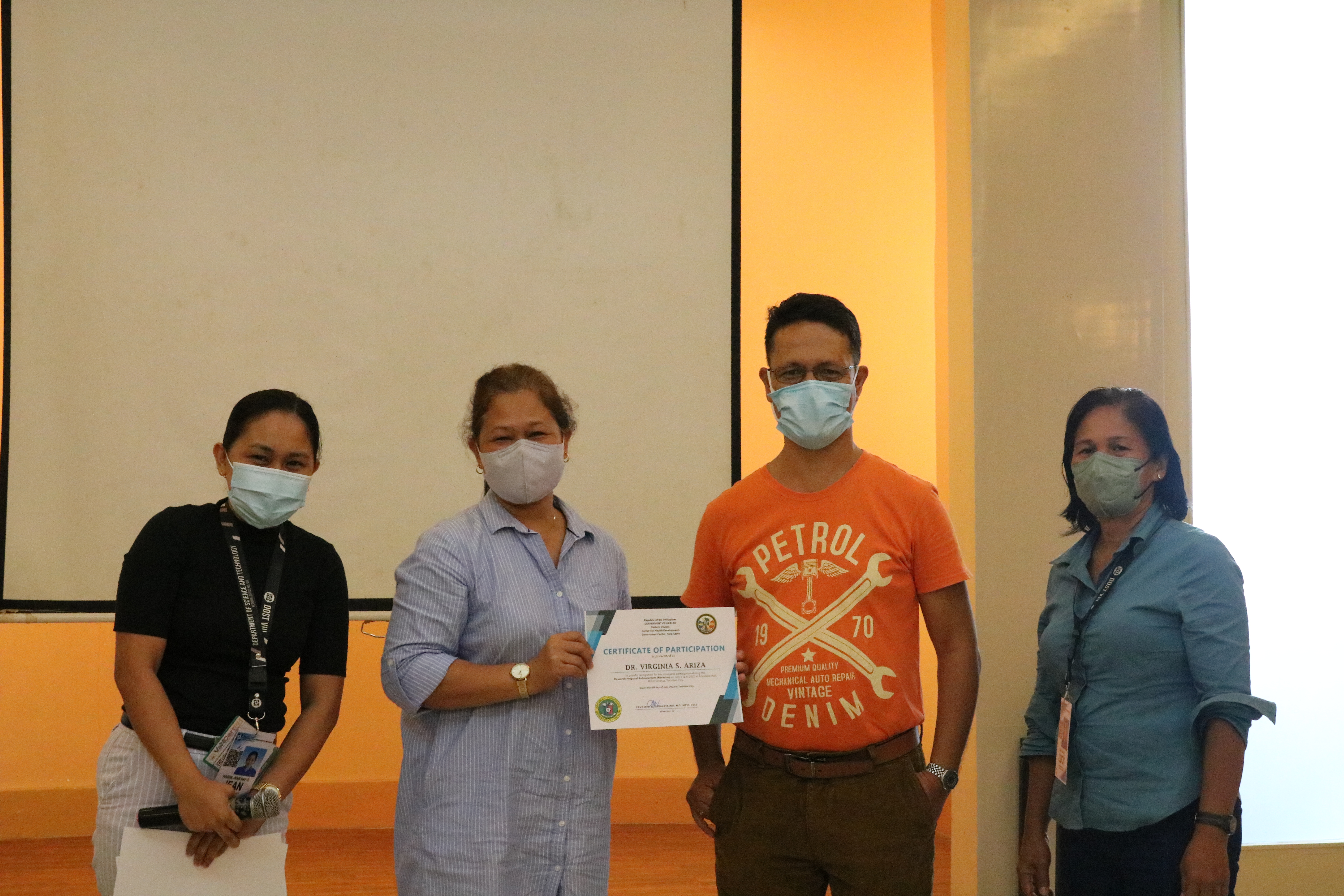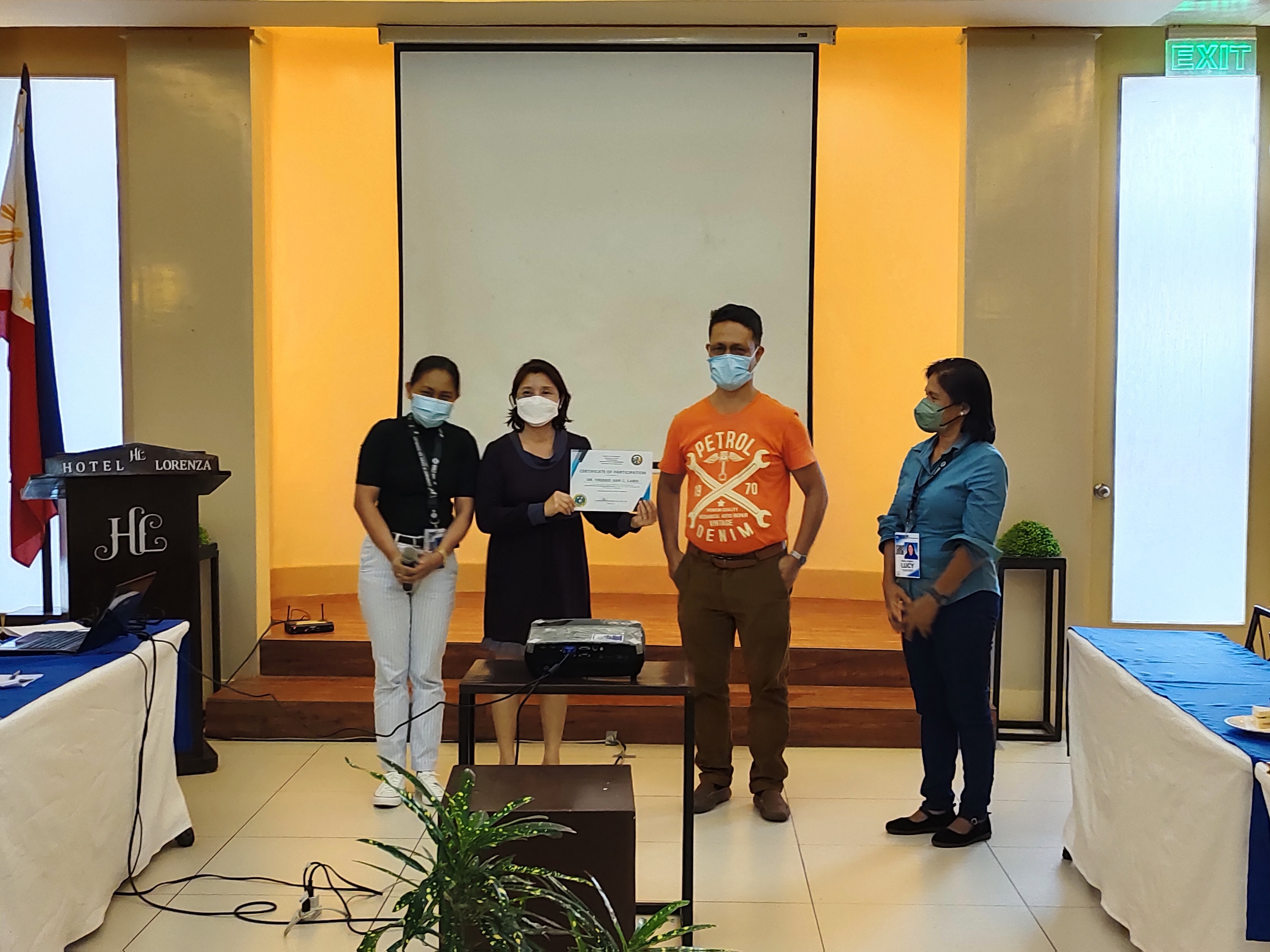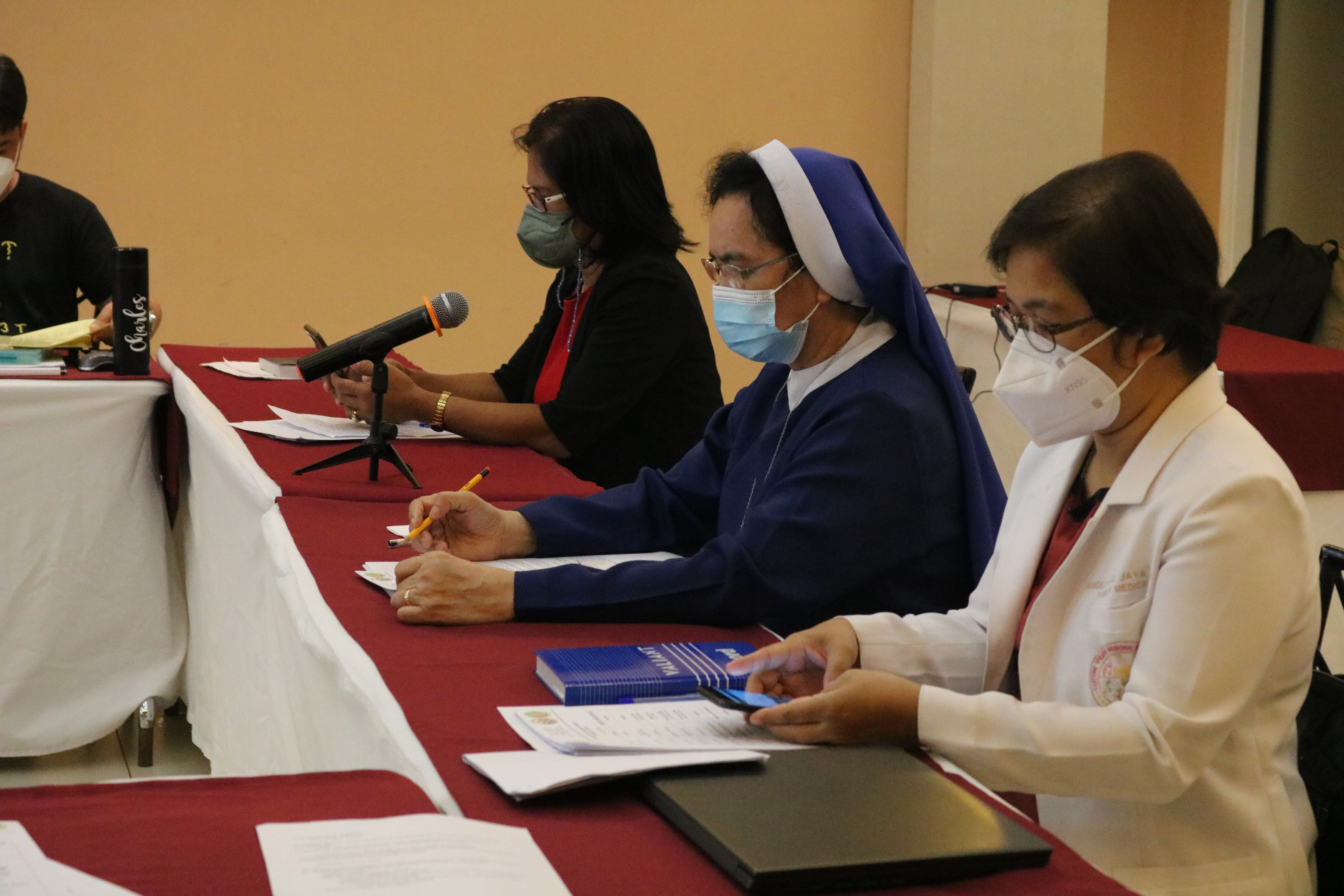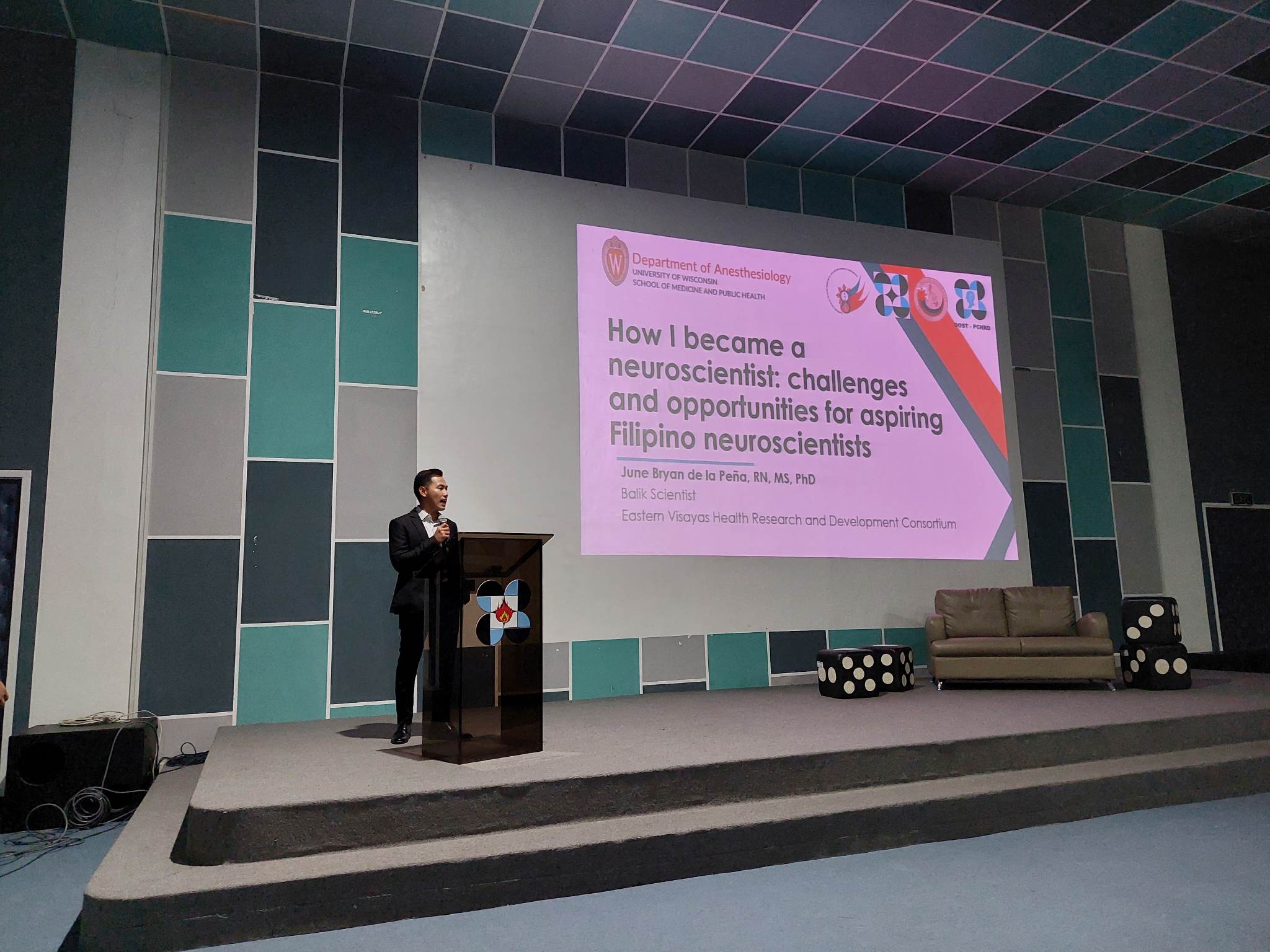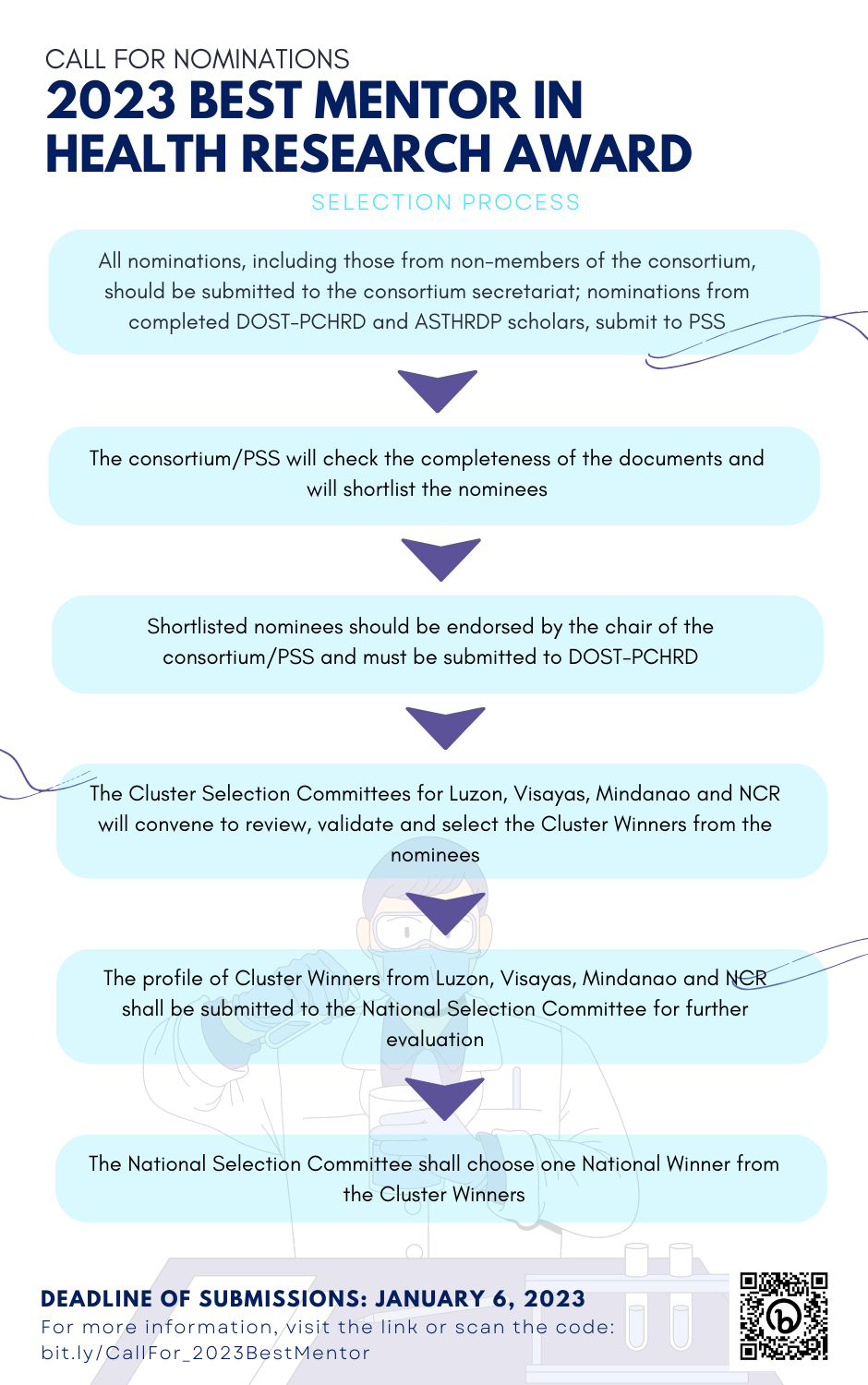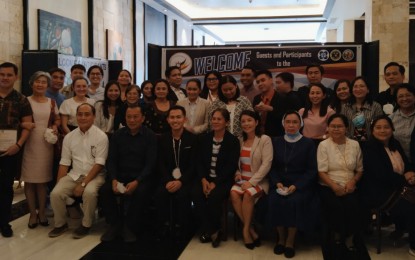Featured Videos
News
- Details
- Written by Raymond G. Campo
- Category: News
- Hits: 1009
The Eastern Visayas Health Research and Development Consortium’s (EVHRDC) Capacity Building Committee (CBC) is in charge of further enhancing the capacity of its thirty-two member institutions in engaging with research-related activities. In the year 2022, the CBC, in coordination with the other EVHRDC committees, conducted training sessions offered to all member institutions and the members of the different committees.
One of the challenges of conducting health research is to ensure the safety of its human participants. All research involving human subjects must undergo ethical review and clearance before the project is implemented. However, there are only two Research Ethics Committees (RECs) in Region VIII that are accredited by the Philippine Health Research Ethics Board (PHREB) that can provide ethical clearance; the EVHRDC Ethics Review Committee (ERC) and Eastern Visayas Medical Center (EVMC) Institutional Ethics Review Committee. To assist its member institutions in creating their own Research Ethics Committees (RECs), the CBC and the consortium’s own ERC organized different trainings. On January 17-19, 2022, CBC, in collaboration with the University of the Philippines Manila – National Institutes of Health (UPM-NIH), spearheaded the Training-Workshop on Research Ethics Committees Standard Operating Procedure for Good Clinical Practice Compliance via Zoom. Potential REC members are required to attend research ethics training and to have their own Standard Operating Procedures (SOPs). These trainings normally require registration fees to participate but EVHRDC shouldered the cost of this training for its members. A total of sixty-seven participants joined the training with REC members of Samar State University (SSU) and Leyte Normal University (LNU) being given a chance to draft and update their existing SOPs and receive feedback from the resource speakers. SSU is waiting for the approval of its PHREB accreditation while LNU is working on the documents for accreditation. Other participants who are members of their own institutional RECs were able to observe how to draft different SOPs. The consortium’s ERC also conducted a Lecture on Ethics in Health Research on August 19, 2022, via Zoom. Five members of the committee served as resource speakers and provided lectures to EVHRDC member institutions, potential members of institutional ethics review committees, and professional and student researchers in the region about the salient provisions of the EVHRDC-ERC’s Standard Operating Procedures (SOPs), and the importance of having an ethical clearance for research projects involving human participants. A total of forty-three participants joined this lecture. Before the year ended, another EVHRDC-sponsored training in collaboration with UPM-NIH was conducted on September 12-14, 2022 via Zoom. The Training Workshop on Responsible Conduct of Research was conducted to provide additional training to REC members and potential members and to further encourage member institutions to apply for PHREB accreditation. Seventy-two participants joined this training. Since the REC of Leyte Normal University was already working on their PHREB accreditation, an LNU-REC SOP Writing was held on December 05-08, 2022 at Sabin Resort Hotel, Ormoc City. The EVHRDC ERC Staff Secretary served as the resource speaker and provided a Discussion on REC and Staff Functions, highlighting the roles of the REC and staff in coding protocols, designing and developing protocol logbooks, databases, folders, agenda, and meeting minutes.
The consortium also provided capacity-building activities to the researchers of Region VIII. A Research Proposal Enhancement Workshop was conducted on July 06-08, 2022 at Hotel Lorenza, Tacloban. The activity aimed to develop and improve capsule and full-blown proposals submitted to the consortium. Three proposals were enhanced as a result of this activity. Some researchers have challenges in the statistical analysis of their data and how to effectively present it. As an initiative, the consortium conducted Data Analytics and Statistics Training on July 18-19, 2022. A total of seventy-eight participants, which included researchers of completed and ongoing EVHRDC-funded projects, researchers with projects in the pipeline, and researchers with research projects for possible funding, joined the training. The participants learned and had hands-on experience with the different statistical methods available in JASP, which is a free multi-platform open-source statistical package developed and continually updated by researchers at the University of Amsterdam. The consortium, through its Research Management Committee (RMC), also conducted a Writeshop on the Finalization of Terminal Reports on November 28, 2022, via Zoom. The committee discussed in detail the approved Terminal Report format in order for researchers to provide the correct information on each of the parts of the report. The write-shop also served as a venue for researchers to present the results and findings of their studies to the RMC so that they can be assisted on how they will incorporate the data in their terminal reports. Four terminal reports were finalized wherein the committee approved two terminal reports and recommended revisions for the other two.
Aside from providing training to the researchers of the region, EVHRDC, through the CBC, also ensured that the members of each committee attend continuing education training. Members of the consortium’s Research Utilization Committee (RUC) and the EVHRDC secretariat attended the training on Communicating Health R&D to the Public: News and Features on July 20, 2022, via Zoom. The RUC is responsible for disseminating relevant information from the consortium as well as developing a strategic research information dissemination plan for ongoing and completed health research through articles posted on the consortium’s website and social media accounts. The primary goal of this activity was to enhance the skills and knowledge of the RUC, consortium member institutions, and staff in writing news articles and features for publication. Meanwhile, EVHRDC’s Research Management Committee (RMC) reviews proposals submitted to the consortium and is responsible for monitoring ongoing EVHRDC-funded projects. The members attended an Orientation of DOST-GIA Guidelines in the Implementation of Health-Related Projects on July 21, 2022, via Zoom in order for them to revisit the guidelines of the allowable expenses/Line-Item Budget of proposals. The members of the consortium’s Ethics Review Committee also regularly attend training and general assemblies as part of their continuing education. Members joined the Continuing Ethics Education: Standard Operating Procedures for Research Ethics Committees on June 20-22, 2022, Practical Training for Research Ethics Committee Members and Staff on August 10, 2022, Principles of Health Research Ethics and Good Clinical Practice (Basic Course) on August 22-25, 2022, 8th PHREN General Assembly on October 07, 2022, and Advanced GCP and Ethics Training on November 02-04, 2022 aside from the EVHRDC-sponsored ethics training. Finally, the members of the CBC joined a lecture conducted by the Balik Scientist hosted by EVHRDC, Dr. June Bryan I. de la Peña, on December 07, 2022, via Zoom. The lecture was entitled, “Neuropharmacology: the next frontier for health research in Eastern Visayas”. As a result of the training, CBC members expressed the need for EVHRDC member institutions to have their own Institutional Animal Care & Use Committee (IACUC) in order to conduct neuroscience research. CBC will request assistance again from Dr. de la Peña for an orientation to member institutions about the IACUC. The CBC is hopeful that more natural science and biotechnological research will be conducted in the future, in addition to social science research, once member institutions will have their IACUC and through the establishment of a neuropharmacology laboratory in the Region, as proposed by Dr. de la Peña.
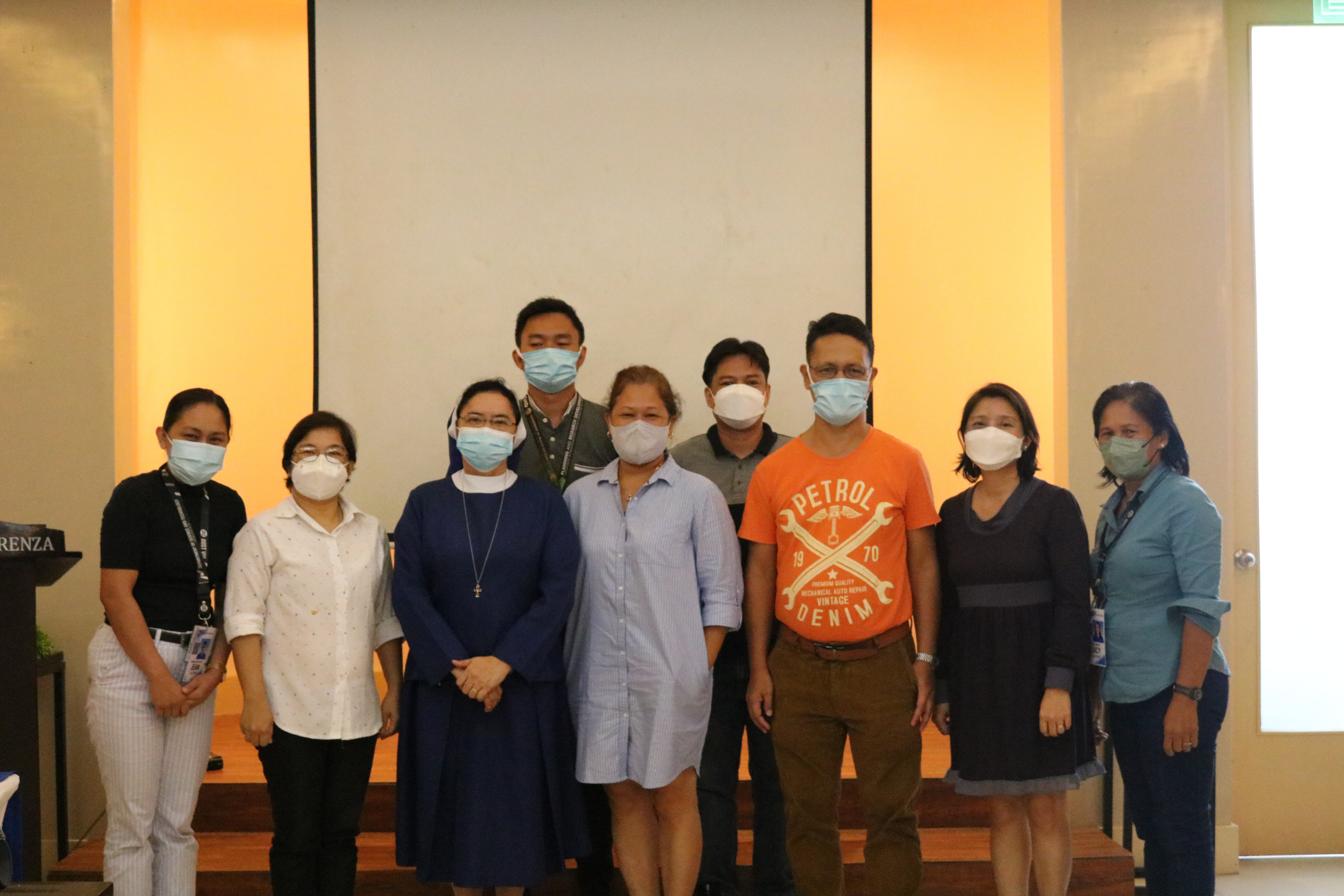
- Details
- Written by EVHRDC
- Category: News
- Hits: 1664
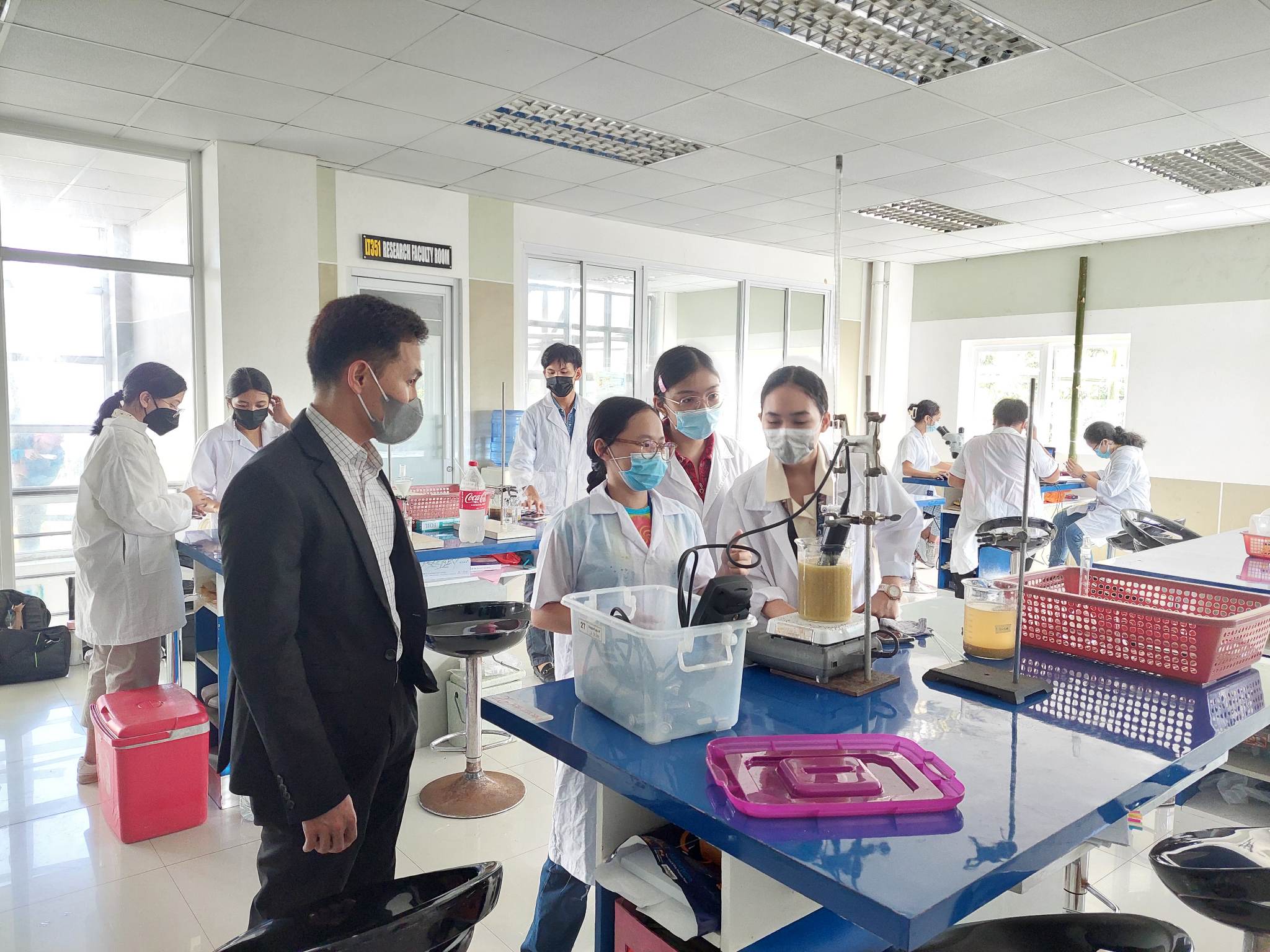 |
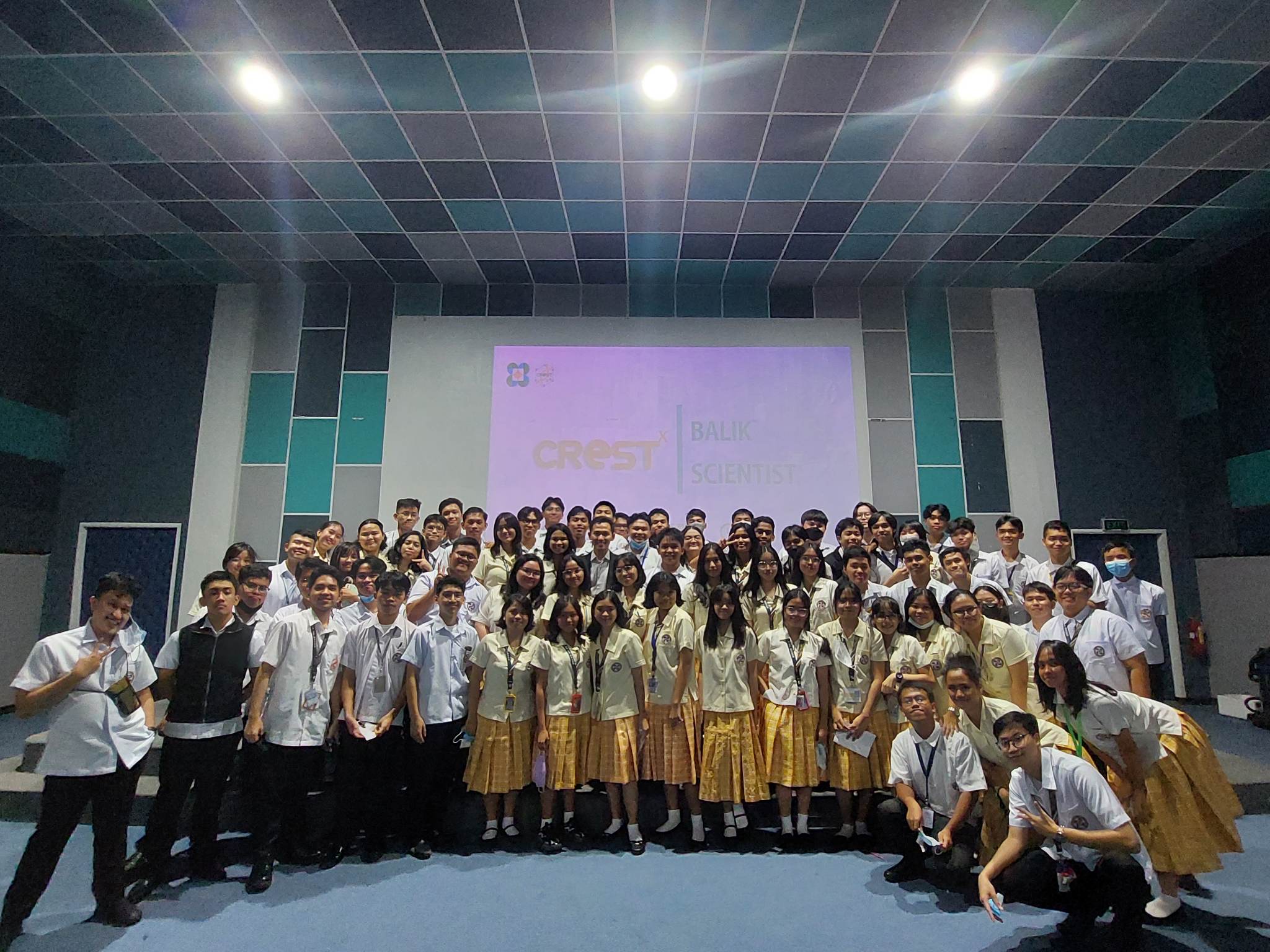 |
.jpg)
- Details
- Written by PCHRD
- Category: News
- Hits: 1242
The Department of Science and Technology- Philippine Council for Health Research and Development (DOST-PCHRD) is pleased to announce that the call for nominations for the 2023 Best Mentor in Health Research Award is now open!
The Best Mentor in Health Research Award is offered biennially to recognize and reward mentors in health research who have built the capacities of researchers in the health sector and, in the process, propelled significant advances in the Philippine National Health Research System’s (PNHRS) thrusts as identified in the National Unified Health Research Agenda (NUHRA).
A. WHO CAN NOMINATE?
The nominating party may be any of the following:
- Head of the nominee’s institution or immediate supervisor
- Colleague/s
- Trainee/s
- Student/s
- Advisee/s
Self-nomination is not allowed.
B. WHO CAN BE NOMINATED?
- Must be a Filipino citizen
- Must be with appropriate or relevant academic qualifications
- Must be actively involved in mentoring researchers/students or colleagues for at least 3 years
- Has a good track record as a researcher in terms of any of the following: publication, product development or policy formulation
- Professionally involved in health research activities either as a research program/project leader, principal and co-principal investigator, mentor/adviser/trainer, or author/co-author
- Actively involved in any health research activities in the last 5 years such as conduct of research training and extension work, paper presentations, fund generation, research promotion and networking, research agenda setting, and capacity-building activities
NOTE: Winners are ineligible for subsequent nominations, while non-winners are still eligible for nominations if they submit a new set of documents, but not for consecutive calls of nomination.
- Details
- Written by Dr. Sherrie Ann C. Labid, (SSU/RUC Chair)
- Category: News
- Hits: 1692
CATBALOGAN CITY- In its commitment to address Sustainable Development Goal No. 3, which is to "ensure healthy lives and promote well-being for all at all ages," Samar State University, represented by the Executive Director for Research Sherrie Ann Cananua-Labid and her team conducted the first collaboration meeting with some health units of the Province of Samar on November 14, 2022, 2:00 PM at Mare e Monte, Catbalogan City.
Salome Patosa, the Maternal, Newborn, Child Health and Nutrition (MNCHN) Coordinator of the Provincial Health Office; Melba Gruta, the Provincial Population Officer IV of Samar; and Mark Bons Fernandez, the Community Development Worker of the Family Planning Organization of the Philippines Plan International, were each there in their respective capacities. Alevir O. de Guia and Nathalie Ann Acosta, faculty members from the College of Arts and Sciences, and Mary Ann Apacible, a faculty member from the College of Nursing, Joshua Josime Siachua, Research Assistant, and James Cataros, a student in the College of Education were also in attendance.
Later that day, Shalom Baile, a nurse from San Jose de Buan, and Jhunlie Escala, the Samar Provincial Youth Development Officer, joined the team.
Discussion topics included the alarmingly high rate of teenage pregnancies, malnutrition, and the prevalence of HIV/AIDS, among other significant and growing health issues in the province.
Participants discussed the various initiatives that respective agencies or units had carried out to address these urgent concerns in the past years.
According to Fernandez, the FPOP has trained peer educators in Sta Margarita Samar who are champions of adolescent sexuality and reproductive health. Gruta stated, "their agency has implemented programs deemed helpful but were suspended because of the covid-10 pandemic, but we are returning to it again."
Escala, the driving force behind the SIRAK Kabataan, expressed his passion for the young in Samar and his desire to create a separate unit that will only cater to their needs, with the option of working in collaboration with the University.
Labid said she would study the viability of establishing a Samar Island Center for Youth Development (SI-CYD) as Executive Director for Research at SSU.
The need for baseline information regarding Samar adolescents' lifestyle, sexuality, and reproductive health was another issue that representatives shared during the meeting. Gruta cited the YAFS poll, although the most recent data had not yet been made public. Additionally, the data do not accurately describe the Samar youth. The body asked SSU for their expertise in conducting research. Additionally, looking into how well the different programs their organizations have implemented are working could be added.
The meeting ended with the affirmation to collaborate in the implementation of some University-approved projects and studies, as listed below.
- Factors Associated with Adverse Pregnancy Outcomes Among Deliveries in Healthcare Facilities in the Province of Samar, Philippines
- Adolescent Lifestyle, Sexual and Reproductive Health: Knowledge, Practices, and Challenges
- Enhancing Awareness of Young Adolescent Fertility and Sexuality (EA-YAFS) in Samar
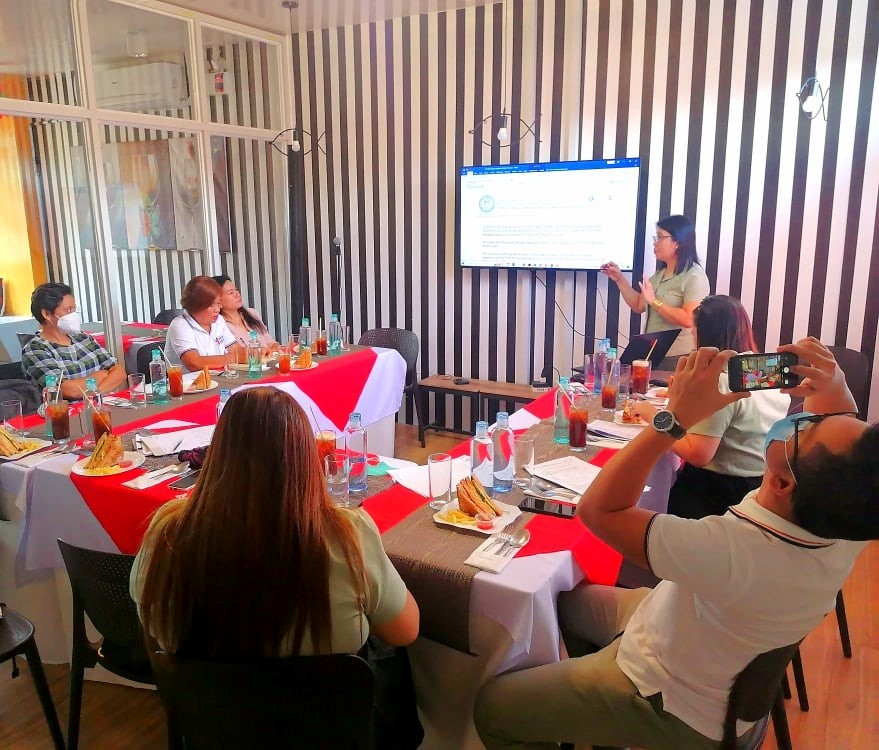
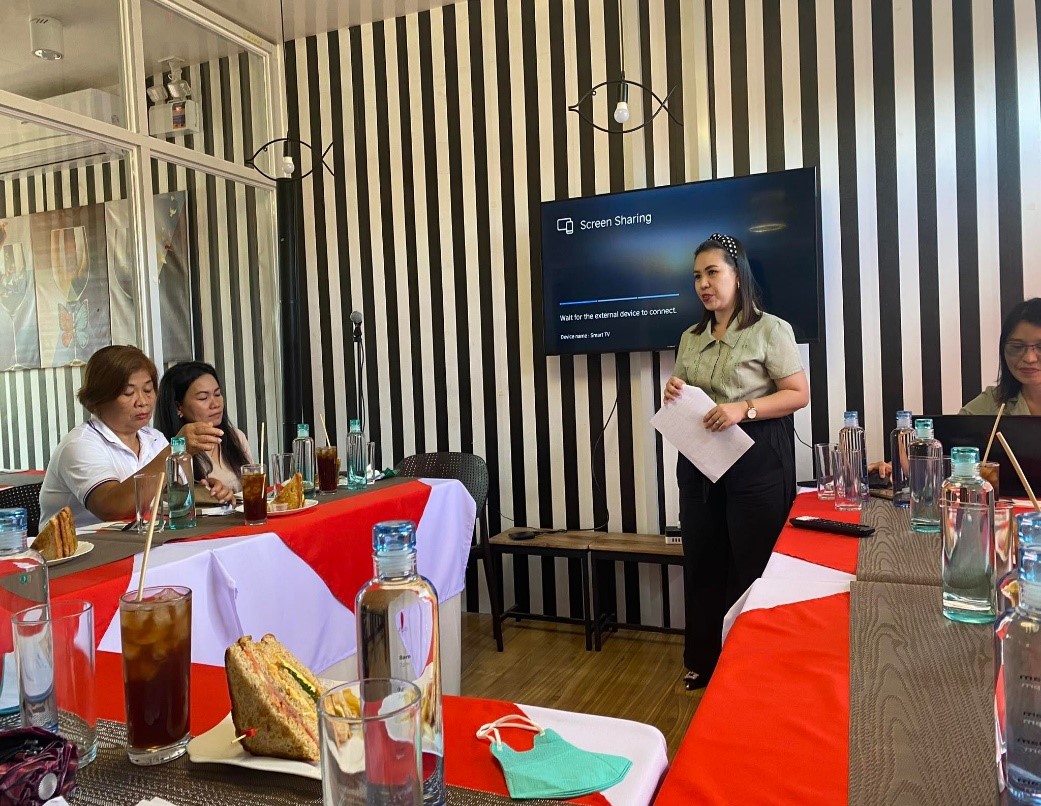
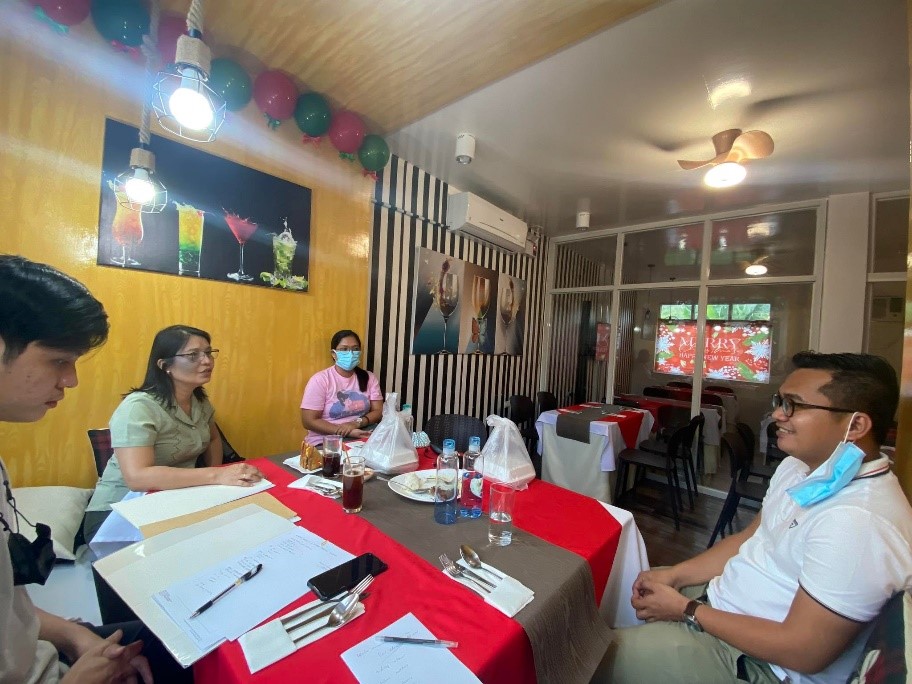
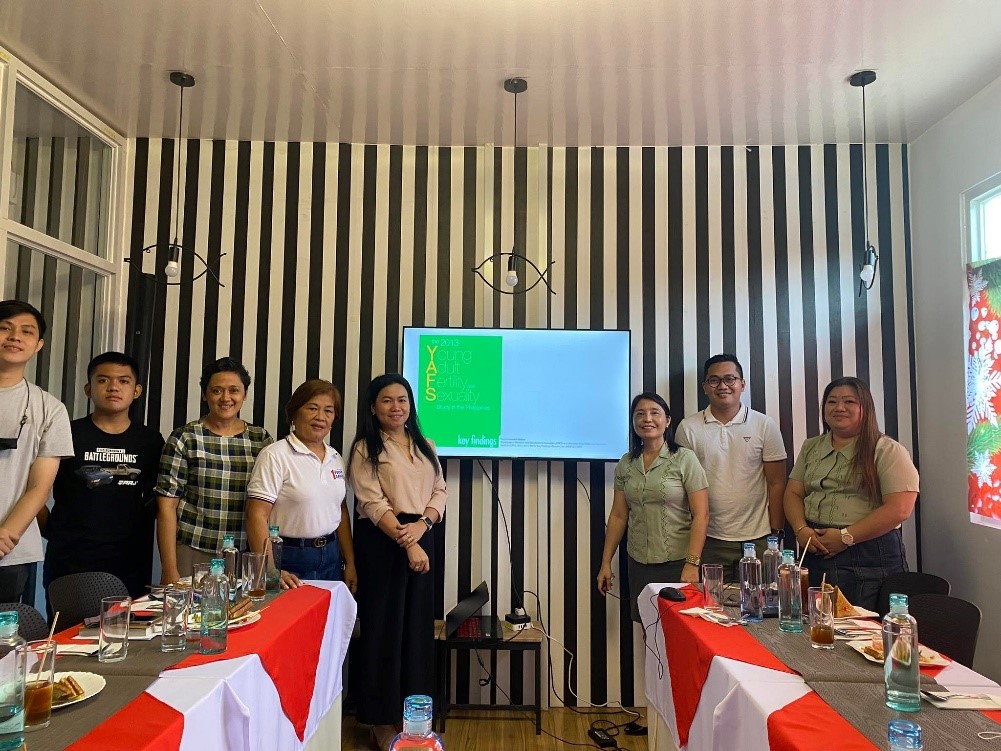
- Details
- Written by Mr. Sarwell Meniano, PNA 08
- Category: News
- Hits: 1086
TACLOBAN CITY – The Eastern Visayas Regional Health Research and Development Consortium (EVHRDC) has picked three studies related to prenatal lifestyle, remote learning by nursing students during the pandemic, and infection control in government hospitals as the region’s best health research studies.
During the conclusion of the regional health research symposium on Thursday, the three research studies were picked as winners in different categories that would represent the region in the National Health Research Award.
The winner in the oral research presentation (professional category) was the study on the correlation between the prenatal lifestyle among teenage pregnant women, and their obstetrical and neonatal outcome by Ryan Cris Jordan, medical specialist of Basey District Hospital in Basey, Samar.
For the student category, the winners were six students of the University of the Philippines Manila’s School of Health Sciences who studied the perceived psychological distress and academic burnout among nursing students during emergency remote learning during the pandemic.


